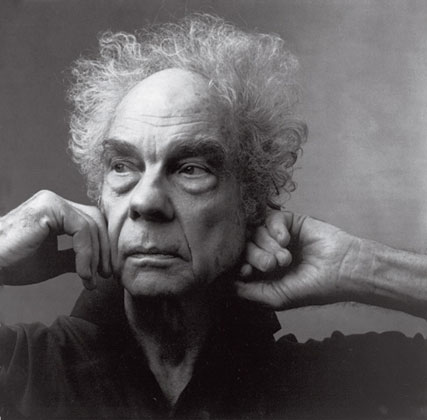Merce Cunningham died last night. He was 90 years old. Groundbreaking dance and performance visionary of the 20th and 21st century, exceptional performer and theorist, Merce created art until the end, choreographing a piece this winter at Brooklyn Academy of Music titled, “Nearly Ninety.”
The first time I heard about Cunningham I was eight years old. My best friend Athena’s parents had taken her to a dance concert at Jacob’s Pillow. I remember shaking with hilarity as she recreated the odd asymetric moves set to even odder atonal sounds. Merce Cunningham = not for children of eight.
The next time I intimately encountered Merce was in my avant-garde theory classes in college. A theoretical master-mind, Merce, along with his partner John Cage and the whole Black Mountain gang helped to define post-modernism, exposing, highlighting and transforming the interdependent elements that comprised performance and, by reification, human experience. As stated in the New York Times Artsbeat (worth reading if you’re unfamiliar with Merce):
In his final years he became almost routinely hailed as the world’s greatest choreographer. For many, he had simply been the greatest living artist since Samuel Beckett.
We also shared a birthday.
Along with my previously discussed reverence for choreographers, I have unlimited admiration and respect for thinkers that are interested in breaking down any kind of experience and looking at its composite parts. After all, that’s what the Buddha did with ultimate reality, don’t you think?
Pina Bausch died June 30th. Merce Cunningham leaves us less than a month later. The European then the American. The mother and then the father. The corporeal then the cerebral. A friend mentioned that it feels like that week that Begman and Antonioni both died – like a certain kind of monolith of mentorship has crumbled and the future seems suddenly less determined than before.

